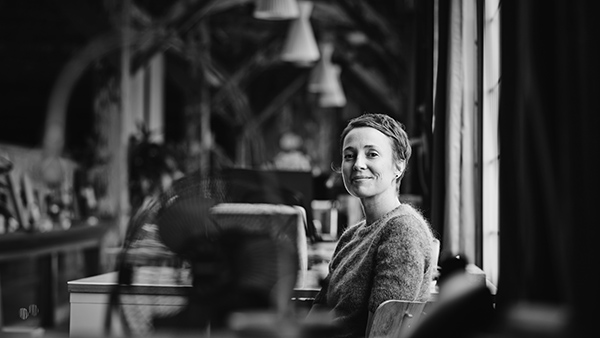RSA Bangkok Network Lead, Chris Oestereich reports back in the midst of a series of circular design workshops rethinking waste and redesigning the systems that create it in Bangkok.
We live in a time of great upheaval wherein change seems our most reliable constant. And in many places, our governments seem to be struggling to function — as that which is demanded of them steadily grows. Businesses fill some of the gaps, but ensuring that societal needs are met is not their raison d'être.
Given these circumstances, those who are not involved in the public sector are left with a couple of choices: wait for the government to adapt to the changing needs of society, or put on our workboots and find a way to pitch in. If the problems were manageable and it seemed we were going to turn the corner soon, we might just wait it out. But that’s not the case, is it? For those who are tired of waiting, we need a way to engage. The Circular Design Lab is trying to clear a path for that group.
With support from The RSA Fellowship, our team developed a program that we’re delivering in Bangkok, Thailand. Our first series of workshops is looking at ways to rethink waste and redesign the systems that create it. That series kicked off with a six-hour session on March 30, as around thirty (mostly) strangers chose to spend their Saturday in our Co:Initiating Lab.
In that session, our core team discussed our motivations for starting the project and our hopes for where it might lead. We then told the participants that they would be responsible for helping us evolve the process. They would be the beta testers and we’d all work together to get through the bumps and find a useful path forward. In doing so, we’d co-create something we hoped would be useful for fostering community-driven change.
We then spent time getting to know each and everyone shared perspectives around the many waste challenges and Praewa led us through a session on deep listening. Na Cafe at Bangkok 1899 catered lunch and Saks Rouypirom shared a little about that organization’s social mission.
After lunch, we headed out into the city for a few hours of ethnography. Teams sought out instances of the waste they were focusing on and attempted to gain an understanding of the systemic forces that led to that waste. They also interviewed a number of the neighborhood’s residents and found many of them were willing to discuss the state of waste. Many of them expressed frustration with specific challenges, as well as a desire to be part of the solution. They also shared their understanding of the causes and ideas they had about changing systems.
After the ethnography session, we came back together at our classroom at the Ford Resource and Engagement Centre (FREC) where teams had a chance to share their findings. Abigail Miguel, our host for the day told us a bit about her work with Scholars of Sustenance, Bangkok’s food rescue program before teams pulled together to set their individual and collective intentions for the rest of the program.
At the end of the six-hour program, most of us hung around for a while as we lingered in the moment. New bonds strengthened as the sense of community we set out to foster seemed to start to take hold.
Next up is our Co:Sensing Lab. In that, we’ll guide the teams through a sensemaking journey that blends design and systems thinking processes with the cultural and behavioral insights picked up during our ethnography session and later observations. The teams will work to gain a deep understanding of their respective challenges as they collectively craft a story of the problem that includes and respects each of their perspectives, as well as the insights they gained from others.
You might be wondering when we’ll get to redesigning the system. That doesn’t really get going until Day 3 of our workshop. By then we’ll have had 10 hours of workshop time and 5 weeks of lag between Day 1 and Day 3.
This is intentional!
It is very human to want to get to solving the problem as soon as you’ve ‘identified it.’ But saying you want to improve recycling is a categorical choice. It is not a defined problem. Our teams will dig far deeper before they set out to ‘solve’ the problem so that they’ll have a far better understanding of that which they’re attempting to change. This will greatly aid their eventual design efforts while increasing the probability of achieving a desirable outcome.
Chris Oestereich is a director at the School of Global Studies at Thammasat University, a Global Ambassador for the RSA Fellowship, and a co-founder of the Circular Design Lab. He’s currently launching Full Circle Filament, a social enterprise that will work with informal waste pickers to increase their incomes, as well as recycling rates. Part III of his Brexit book, The Dividing Kingdom, will be released whenever the government figures out where it wants to go.
Related articles
-
-
Rethinking Fashion
Josie Warden Rebecca Ford
A 4-month learning journey with 12 creative ventures to accelerate the transition to a circular future for fashion.
-
4 ways Covid-19 will change the fashion industry
Josie Warden
Lockdown is changing shopping habits. The crisis could be a chance for positive change.




Be the first to write a comment
Comments
Please login to post a comment or reply
Don't have an account? Click here to register.